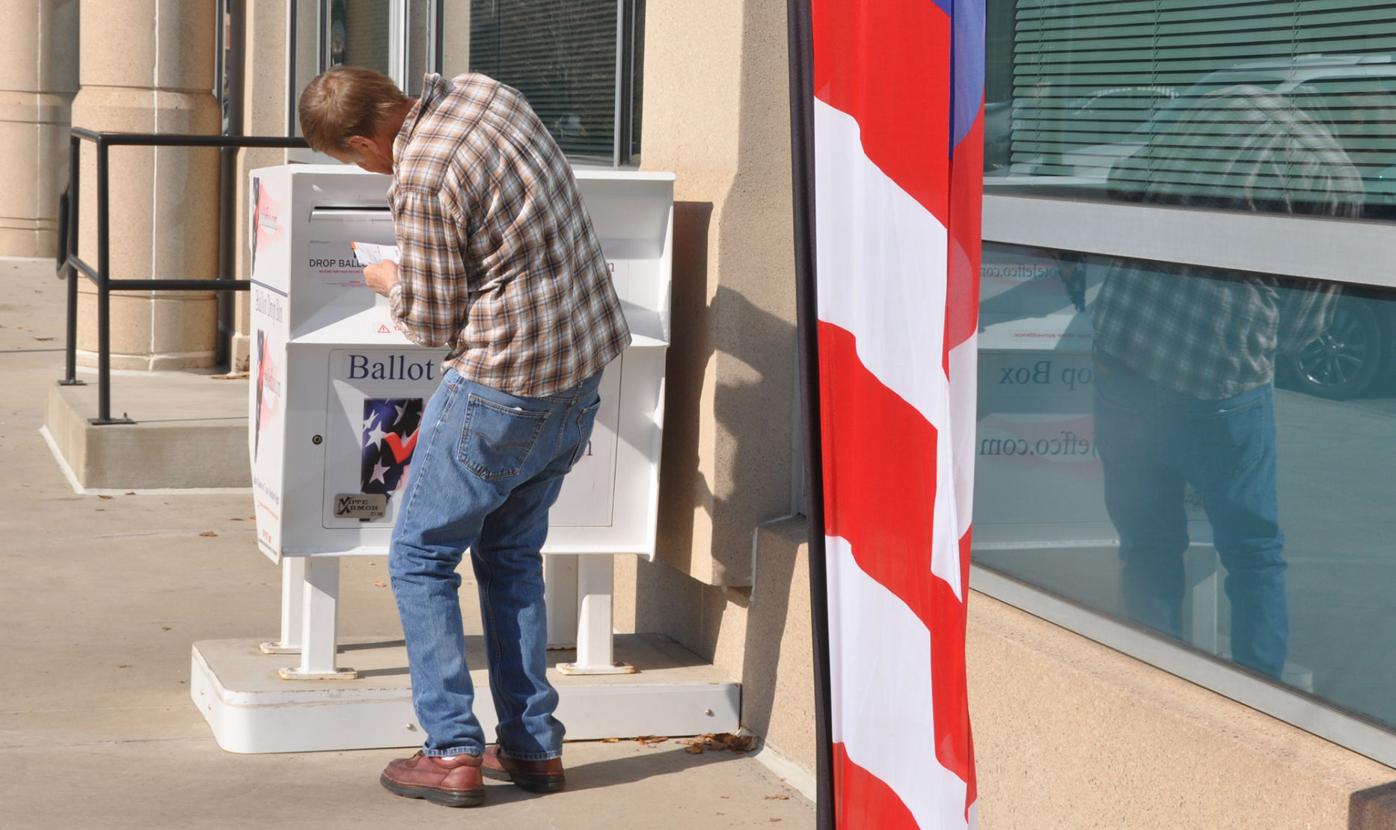Appeals court upholds former GOP chair’s felony conviction for voter fraud
The former Colorado Republican Party chair’s felony forgery conviction will stand, after the Court of Appeals on Thursday rejected his argument that he should have been charged with a lesser offense when he fraudulently submitted his ex-wife’s 2016 mail ballot.
Steven Curtis voted twice in the 2016 general election, filling out his own ballot as well as that of Kelly Curtis, his ex-wife. He forged her signature and mailed her ballot to the Weld County Clerk and Recorder. When Kelly Curtis, who lived in a different state, contacted the clerk’s office for an absentee ballot, she learned that she had apparently voted already. She subsequently confirmed the signature on the ballot received was not hers.
“It seems to me, and correct me if I’m wrong, that virtually every case of voter fraud I can remember in my lifetime was committed by Democrats,” Steven Curtis said on a radio show shortly before the election, Colorado Politics reported at the time.
Prosecutors used DNA testing and a handwriting expert to confirm Curtis had cast the second ballot himself. At trial, he blamed a combination of his diabetes and “poor vision, lack of sleep, and stress” for his actions. A jury convicted him of felony forgery and a misdemeanor mail ballot offense.
Curtis appealed, arguing the General Assembly intended to confine prosecution of mail ballot fraud to the elections statute, where it is a misdemeanor.
“[T]he provisions governing election offenses have been carefully crafted by the legislature to control all things pertaining to elections,” Curtis’ public defender, Kamela Maktabi, argued to the Court of Appeals. Consequently, “the prosecutor had no discretion to charge him under the general felony forgery provisions of the criminal code but could prosecute him only under the specific violation of an election offense.”
A three-judge appellate panel disagreed that prosecutors lacked the authority to charge him, and upheld Curtis’ felony conviction. State lawmakers, concluded Judge Stephanie Dunn in the panel’s August 5 opinion, intended merely for the mail ballot law to provide for vote-by-mail elections — not to enact a new law enforcement regime.
Curtis also argued that he could not be charged for both offenses because they criminalized the same conduct.
“But they don’t,” Dunn responded. “Forgery requires ‘intent to defraud’ while a mail ballot offense doesn’t.” She added that felony forgery does not cover the exact same criminal behavior as the mail ballot tampering law.
The appellate panel further rejected Curtis’ claim that the prosecutor committed misconduct in front of the jury by labeling as a “story” Curtis’ attempt to blame his diabetes on his commission of voter fraud.
Curtis led the state GOP from 1997 to 1999. The Colorado Republican Party did not immediately respond to a request for comment.
“I do believe a felony forgery conviction is a fair punishment for Mr. Curtis stealing his wife’s ballot and deliberately forging her name,” said Amber McReynolds, a national vote-by-mail advocate and the former director of elections in Denver.
Wayne Williams, who was the Republican secretary of state during the 2016 presidential election, agreed that not all mail ballot offenses require an intent to defraud, but a person who does have that intent is committing a more serious infraction.
“The Court of Appeals therefore correctly found that the two crimes are separate,” he said.
Former President Donald Trump, whom Curtis said he voted for in 2016, has endorsed the false notion that fraud contributed to his election loss in 2020. The claims have fueled Republican state legislatures’ efforts to enact more restrictive voting laws under the guise of election integrity.
The pushback against allegations of Democratic election malfeasance has come from a variety of authorities. For instance, the appellate panel’s decision in Curtis’ case came two days after a federal magistrate judge in Colorado castigated and sanctioned two attorneys for filing a frivolous lawsuit alleging vote-rigging in the 2020 general election.
The same week, a letter surfaced that a Republican county clerk sent to one of the Colorado legislature’s foremost GOP skeptics of the election results.
“We’ve just realized with all the vote fraud they had to conjure to get above Trump’s numbers, that the left is working with a lot of sleight of hand,” Rep. Ron Hanks, R-Cañon City, wrote on his Facebook page last year.
Fremont County Clerk and Recorder Justin Grantham told Hanks in his letter that he was “truly surprised you never made the time to have a conversation with the chief election official of the county that you reside in and represent.” Hanks resides in Fremont County. Grantham added, “The misinformation being spread has led to multiple threats on Clerks including myself.”
David Pourshoushtari, a spokesperson for the Colorado Democratic Party, said on Thursday that Colorado’s vote-by-mail system is the “gold standard,” with protections in place to deter election fraud.
“No one is above the law, and regardless of their party, folks who are found trying to cheat in an election should absolutely be held accountable,” he said.
The case is People v. Curtis.
This story has been updated to include additional comments.





